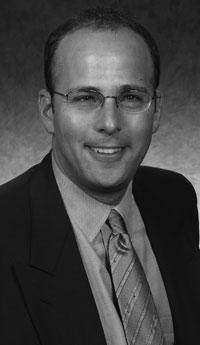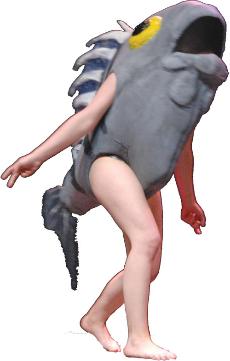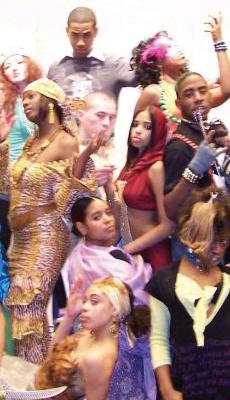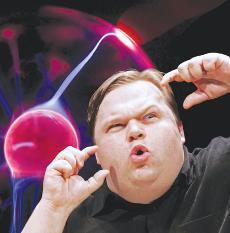Q&A With Jonathan Kraft

February 27, 2007
Jonathan A. Kraft is the chief operating officer and president of the Kraft Group, the holding company for the Kraft family’s business interests, which include the New England Patriots and the New England Revolution of Major League Soccer. Kraft is responsible for the management of the organizations and also works closely with his father, Patriots and Revolution owner Robert Kraft, to represent the teams at league meetings and conferences.
A graduate of Williams College and Harvard Business School, the dynamic Kraft also finds time to coach many of his children’s youth sports teams and worked very hard with local Pop Warner leagues to prevent a potentially disastrous split between the city and suburban teams a few years ago. For his efforts, he was awarded the prestigious Warner Award, given to a person each year that makes significant contributions to Pop Warner football in this state. Earlier this week, I had a chance to do a phone interview with Kraft, touching on everything from Shawn Merriman to David Beckham. The second part of the interview will be printed in next week’s edition.
Mass Media: The Cincinnati Bengals have had something like nine players arrested over the last 14 months and you guys don’t seem to have those problems. Why do you think that is.
Jonathan Kraft: I think as an organization we have a philosophy about the type of people we like to bring on to the team and [player personnel director] Scott Pioli’s group does a tremendous amount of research before anybody is drafted or any free agent is signed. I mean, nothing’s perfect, and knock on wood, we haven’t had the types of problems the Bengals have had, but hopefully the work we do up front in trying to understand the free agents and the college players helps us choose guy who have less of a predilection for getting involved in those types of incidents and maybe other teams don’t apply the same rigor or level of importance to it as we do, I don’t know that, but I maybe that’s the case.
MM: Do you think that having strong character players is important for having success on the field and do you think that it has been an important part of the success that the team has had?
JK: I think Bill [Belichick] would say that when you have an ultimate team game in which coaching, being selfless and being disciplined is an important part of it those sort of characteristics as a generalization would run counter to the types of behavior that get guys arrested and get guys in trouble that you’re seeing around the league. But again, we’re talking about 53 young men [on the roster] and statistically, with that age group, and a little money in the pocket, and the way a lot of them have grown up in an entitled environment because of their athletic status, all of those are complicating factors that make the job of choosing who you want, managing them, and keeping them focused, it’s difficult. When you can get through the way we’ve managed to get through you feel good about it and hopefully the rigor keeps us at the low end of the spectrum, but its going to be hard to stay perfect.
MM: The salary cap is going to expand next season, what do you think that’s going to mean for the free agent market and for you guys in particular?
JK: Fortunately we’re in a good cap situation. It’s one of the philosophies of the organization to never get ourselves to over-committed in future years, and so we go in this year with a fair amount of room. The scouts and the coaches are just now starting to look at the free agent market, the market opens up March 1, and the pro-personnel scouts have been culling the list down to as group we might be interested and I think we’ll do a lot of detailed analysis over the next couple of weeks and see on March 1 id something makes sense for us. Fortunately, if something is interesting we have the cap space to go out and compete for it, but just having cap space and cash available isn’t the be all and end all. At the end of the day you still have to make smart decisions relative to a players skill set and the value for that particular position or that particular player.
MM: What are a few things that a good owner has to do or qualities that an owner has to have to be successful? What makes a “good” owner?
JK: I think that there are a lot of models that work. In general, you have to be committed to providing your fan base with great value and a commitment to winning. They have to know that you’re committed to winning so that they can invest their money and their passion in your team and what you’re doing. All of the products you create, be it the on field product, the day of game experience, be it your media properties, be it your retail stores, be it the sponsorships and promotions you create; all of them have to have a high level of quality and value associated with them and you have to be committed to that. Then when it comes to the football side of things, you have to find really great people to run the coaching and personnel side of things, because that’s an acquired skill set, built up over many years and it’s not something transferable from other industries. You have to try and find good people with whom you can have a good working relationship and then empower them and be there to help them when they need to bounce ideas around, or just have somebody to talk to. I think that’s probably what a good mix is.
MM: In the wake of the whole Shawn Merriman thing, there’s a new policy that says that a positive test for steroids during the season means missing the Pro Bowl, but a lot of guys skip out on the Pro Bowl anyway. Do you think that this policy is enough of a deterrent?
JK: I don’t know if going to the game is the issue as much as the bonuses and the benefits that a lot of guys have in their contracts, where if they make the Pro Bowl or are named on the AP All-Pro team they get big financial incentives. There are financial reasons beyond just going over there and playing in the game and getting your check for being in the game; A lot of guys have that built into their contracts. I think that [the policy] certainly makes a lot of sense. I mean, it is another deterrent, but it also provides credibility to those end-of-year awards. If a guy is found to test positive, he shouldn’t be an All-Pro and he shouldn’t go the Pro Bowl. His legacy, which is a lot more than the check that you get for going over to the game, or for that matter the bonus, that will have mark against it and it will be another Pro Bowl or All-Pro selection that he doesn’t have twenty years from now when someone is looking back on his record.
MM: Hypothetically, somewhere down the road, you end up being the commissioner of the NFL. What are some things that you would change right now if you could and what are some things you would leave alone?
JK: First of all, we have a commissioner who hopefully will be commissioner for a long time and it’s not a job that I would ever want to have. But one thing that we need to do is to continue to evolve the player-league relationship that is governed by our collective bargaining agreement. We’re still working off a system that in a lot of respects was set up in the early nineties and now, 15-plus years later, it’s probably time to evolve that and to make sure that the relationship between the players and the owners was one that continued to make us partners in the growth of the game, but also allowed each side to feel good and that they were treated fairly, while at the same time keeping competitive balance because that’s what drives the game.
I’d also be focused on the digital media world and all of the opportunities that that presents us to deliver content to our fans; not just game content but the six-day-a-week content that we’re generating in a way that’s most useful to our fans and will continue to drive their passion. Thirdly, we have to find ways to make stronger and greater in-roads internationally. We’re playing a regular season game in London this year, and this will be the first time something like that has ever happened.
We played a game [between the Cardinals and the 49ers] a few years ago in Mexico City that was a big success and now we’ll be bringing Miami and the Giants to London. You know, there were a half of a million ticket requests in the first 48 or 72 hours, so the game sold out, in effect, instantaneously and the Patriots are going to be going to China in the pre-season next year with Seattle. In Asia, and Europe, and South America, because the game is not indigenous to those countries, we need to figure out how to bring those fans into what we believe is the greatest game in the world.





























































